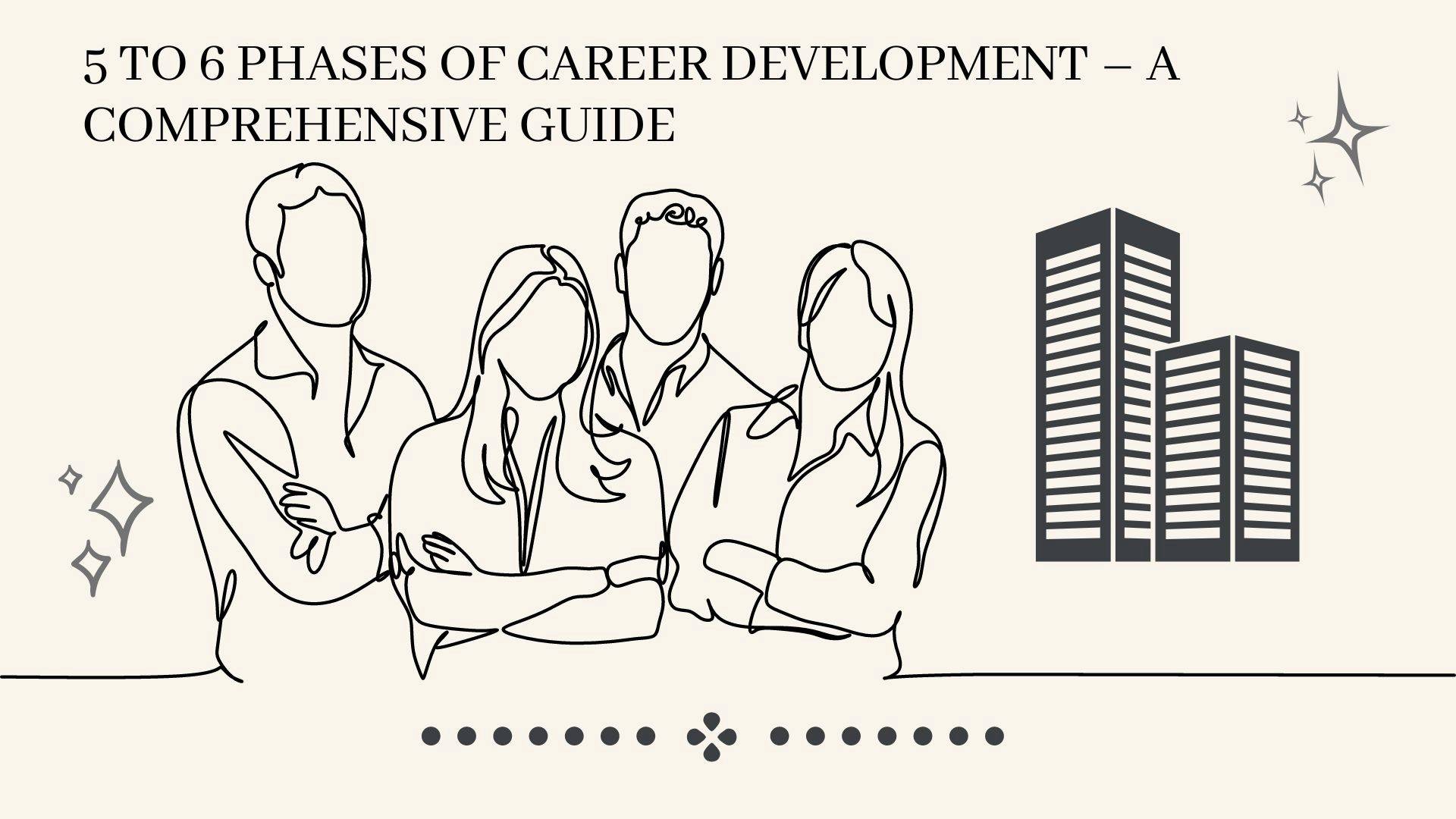Building your career and advancing yourself through the ranks takes effort. But your actions must be based on clear, educated information. Without the proper knowledge, your career development can seem random.
And if you are not assertive, you can be swept aside as your colleagues make real progress. Sadly, this premise is often the case, particularly with software careers.
Talent management experts develop ways to help employees plot their path to the top more easily. Employees need a good talent management strategy. It shows them what activities and approaches will constantly advance their careers.
Software careers are fluid and highly diverse. So, software experts seem to be transitioning every few years. Thus, software talent management experts need to clarify to staff what they need to do to develop. They also need advice on areas that are viable for long-term work.
Human resources experts identify 5 phases of career development. They say professionals go from exploring to declining over their careers in a company. Another view lists 6 phases of career development. These look at the broad spectrum of a professional lifetime.
Here is a comprehensive discourse on these different perspectives:
6 Phases of Career Development – A Holistic Perspective
According to the US Chamber of Commerce, there are 6 stages of career development. These include
- Assessment
For most people, this phase starts right after college graduation. At that point, you may have a few things you enjoy doing. But you aren’t fully aware of your talents. Also, you don’t know precisely what you can offer the workforce.
So, focus on being self-aware. Do your brainstorming and self-assessing. But also pay attention to feedback from seniors about your strengths and weaknesses.
You also want to work with software talent management experts to help you through this phase. Software talent management experts are professionals with extensive knowledge of utilizing technology to maximize your potential.
Also, joining a mentorship program designed for young experts in your field is good. This way, you can also rub your minds with peers from other companies.
- Investigation
You become more aware of your available options at this stage. Also, you may feel confused and overwhelmed by all the possibilities. That is not abnormal. You are well on track.
At this stage, begin networking and talking to pros a few years ahead. They can offer sound advice based on experience. So, have a positive attitude and be open-minded. Some opportunities that may interest you will surprise you.
The key to success is to have a dynamic approach to your field. Don’t settle down too early. Instead, look for challenges and try to solve existing problems. And don’t be afraid to try new things.
- Preparation
You are in your chosen profession at this stage, adding to your knowledge and talents. Also, you are setting career goals and planning for the future. Or you have just found the ideal career path you desire. So, you are working hard to become an expert on that path.
You have some clarity at this stage. So, you are finally making forward momentum. But many people realize they aren’t in their ideal position. That’s not unusual. This phase builds the experience you need to move to the next stage in your career.
As such, you need to take into account everything happening in your surroundings in making preparatory decisions geared towards protecting your future.
- Commitment:
You know what kind of work you want to do at this phase. Also, you have a specific plan of action for the future. You are now focused on finding new opportunities at work. In addition, you are taking on more responsibilities.
But ensure you are not distracted at this stage of your career. Instead, take time to leverage your network and focus on career development. An effective talent management system helps you remain focused on achievable goals.
A talent management system keeps track of your career activities. They help predict future opportunities so you can be prepared. Also, they help you match your personal goals with your company’s.
- Retention
By now, you are a reputable professional in your industry. As a result, others look to you for leadership. Also, your knowledge and experience have proven you a worthy expert in your field.
As such, your day to day professional activities should serve as an example for those striving to reach this position. Becoming the model employee, particularly at this stage would be a great motivation for upcomers.
Although it feels great to reach the retention phase, there are downsides. Many people relax and stop pressing for growth and progress. But it is essential to keep advancing your talents and knowledge.
As we all know, the world is always progressing. As such, its constant evolution demands that you continue to learn and evolve with it. Moreso, with technological advancements, learning becomes a lot easier, so you can stay current with industry trends and standards. Also, keep anticipating future career milestones.
- Transition
As an expert in your field, you may reach a point where you feel you’ve gone as far as possible. So, you may feel unsure of what to do next. And you may not know what else you would enjoy doing.
Now, it is time to transition to the next phase of your career. Transitioning is uncomfortable. And that’s because you feel you are starting over from scratch. Yet, you already have the resilience and self-awareness you need to know your next move.
Transitioning is different for everyone. It may involve taking another position in your industry. Otherwise, you could move into another industry altogether. Here, talent management technology can greatly assist.
5 Phases of Career Development – A Human Resource Perspective
Similarly, human resource managers discuss these 5 stages of career development:
- Exploration
Most people begin thinking about careers as children. Parents, teachers, society, and experiences influence us. As we grow and become more aware of financial issues, our decisions change or get stronger.
Then, we end up in college. After that, exploring stops for most in their mid-twenties, after college. Then, finally, people move from college to their first professional job.
The exploration phase is full of expectations formed by people before they get a job. Many of these expectations are unrealistic. Such expectations may lie dormant for years and pop up later. They can cause frustration to employees and employers.
- Establishment
This phase begins with searching for work and landing the first job. It also includes learning the position and gaining initial evidence of success or failure in the real world. This stage begins with uncertainties, anxieties, and risks.
You will make mistakes and learn from them as your responsibilities increase. But you haven’t reached the peak of your productivity yet. Also, you aren’t in your ideal position at this stage.
- Mid-Career
Most people face their worst dilemmas at this phase of their careers. That is because most people find themselves stuck between actually moving forward and deteriorating. Also, you are expected to move beyond apprenticeship to full-worker at this stage.
In more extreme cases, you may find yourself incapable of running parallel with societal evolutions. Likewise, you may be saturated with the experience of losing love for your job.
If the former is your case, you may find it harder to get up to speed. On the other hand, if you are oversaturated with experience, you may be stuck at that point.
If you make a successful transition, you assume more responsibilities and rewards. It may be time for reassessment, readjustment, and job changes if not.
However, you may find job switching problematic if you are over-saturated with experience. That is because the level you are at is for your current job, and you do not have the experience to take on a higher-level job.
- Late-Career
The late-career phase is often a pleasant time if you do well in the mid-career stage. You are afforded the luxury of relaxing a bit. Also, you enjoy the respect of younger employees. Because you are no longer learning, you are now responsible for teaching and directing.
If you stagnate during the previous stage, the late-career phase brings a stark reality. Your hopes of changing the world are no longer feasible. Instead, with decreased mobility, you become locked in your job. This reality will make you desire retirement or a different career.
- Decline
Leaving at the final stage of your career can be tough, particularly if you’ve had a successful run. But after several decades of continuous achievements, the time comes to retire.
Final Thoughts
The constants of any career are growth and change. And you must keep improving your skill sets and knowledge no matter your stage. Also, you must have the correct information early in your career. This information will help you make intelligent decisions for your future and avoid failure.
With the reality of career development, there is an obvious need for more talent management jobs. People need good advice at every phase of their careers. So, they need a good talent management definition of tasks and opportunities.











